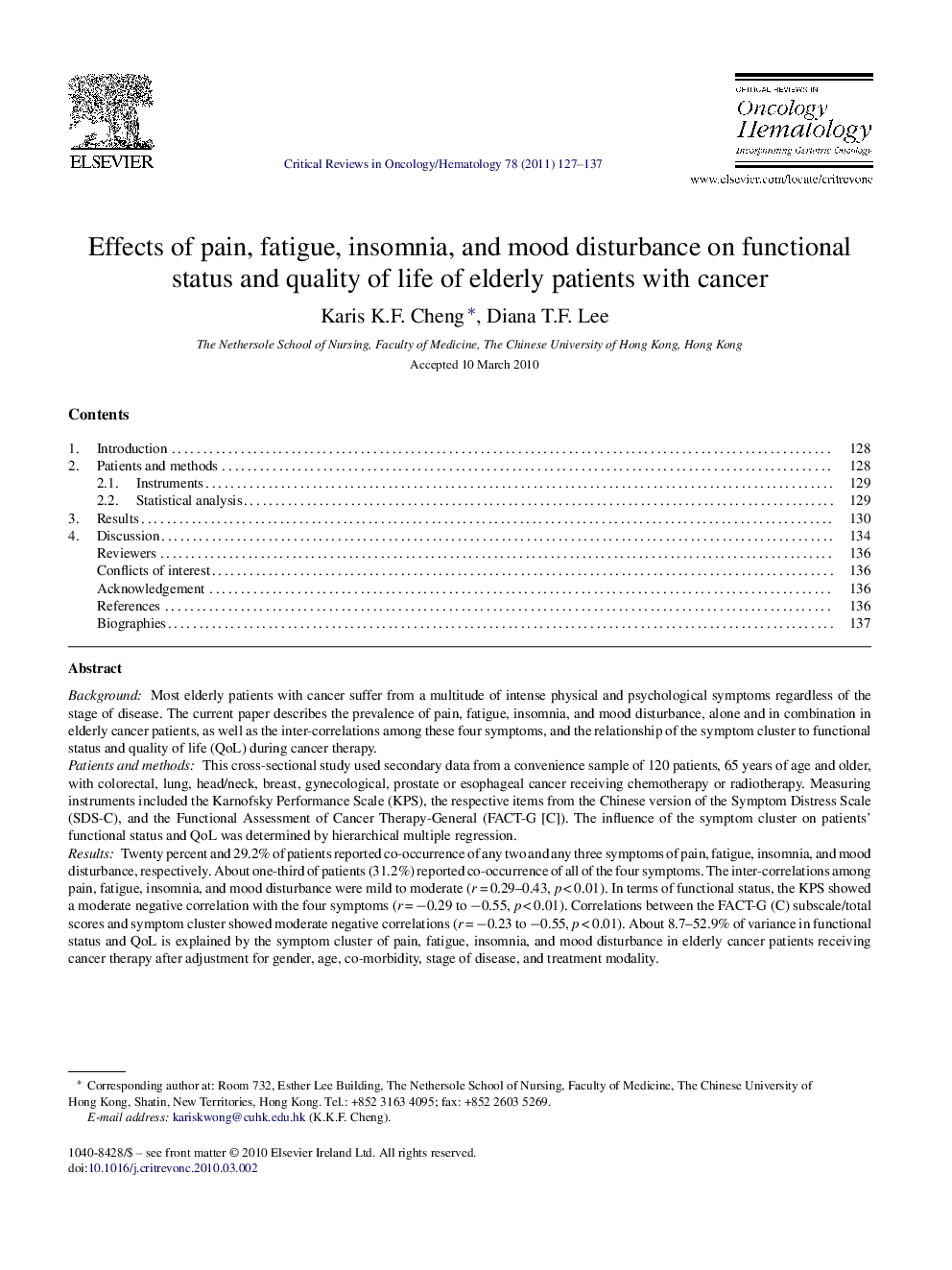| Article ID | Journal | Published Year | Pages | File Type |
|---|---|---|---|---|
| 3329340 | Critical Reviews in Oncology/Hematology | 2011 | 11 Pages |
BackgroundMost elderly patients with cancer suffer from a multitude of intense physical and psychological symptoms regardless of the stage of disease. The current paper describes the prevalence of pain, fatigue, insomnia, and mood disturbance, alone and in combination in elderly cancer patients, as well as the inter-correlations among these four symptoms, and the relationship of the symptom cluster to functional status and quality of life (QoL) during cancer therapy.Patients and methodsThis cross-sectional study used secondary data from a convenience sample of 120 patients, 65 years of age and older, with colorectal, lung, head/neck, breast, gynecological, prostate or esophageal cancer receiving chemotherapy or radiotherapy. Measuring instruments included the Karnofsky Performance Scale (KPS), the respective items from the Chinese version of the Symptom Distress Scale (SDS-C), and the Functional Assessment of Cancer Therapy-General (FACT-G [C]). The influence of the symptom cluster on patients’ functional status and QoL was determined by hierarchical multiple regression.ResultsTwenty percent and 29.2% of patients reported co-occurrence of any two and any three symptoms of pain, fatigue, insomnia, and mood disturbance, respectively. About one-third of patients (31.2%) reported co-occurrence of all of the four symptoms. The inter-correlations among pain, fatigue, insomnia, and mood disturbance were mild to moderate (r = 0.29–0.43, p < 0.01). In terms of functional status, the KPS showed a moderate negative correlation with the four symptoms (r = −0.29 to −0.55, p < 0.01). Correlations between the FACT-G (C) subscale/total scores and symptom cluster showed moderate negative correlations (r = −0.23 to −0.55, p < 0.01). About 8.7–52.9% of variance in functional status and QoL is explained by the symptom cluster of pain, fatigue, insomnia, and mood disturbance in elderly cancer patients receiving cancer therapy after adjustment for gender, age, co-morbidity, stage of disease, and treatment modality.ConclusionsOur results suggest that pain, fatigue, insomnia, and mood disturbance are highly prevalent in elderly patients who undergone cancer therapy. These four symptoms may occur in a cluster and may negatively influence elderly patients’ functional status and QoL during cancer therapy.
